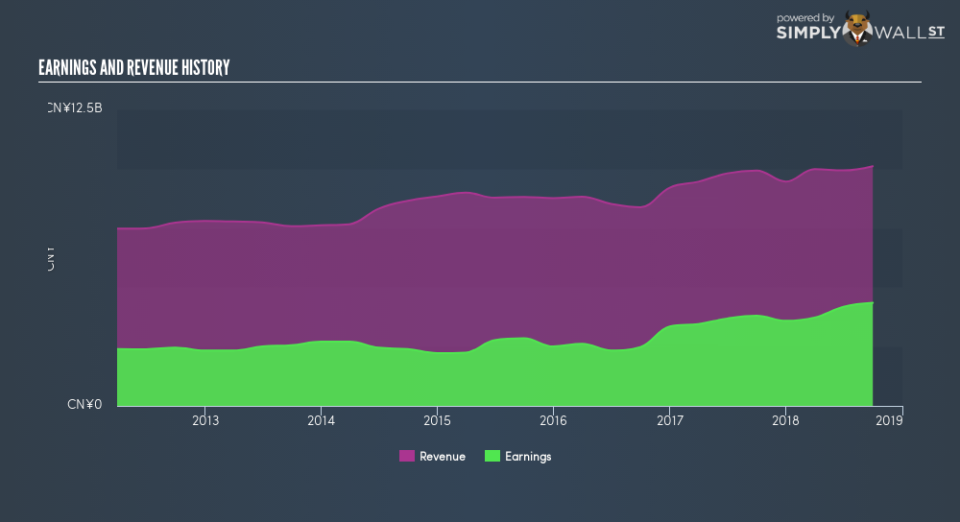What Kind Of Shareholder Appears On The Jiangsu Expressway Company Limited’s (HKG:177) Shareholder Register?

Want to participate in a short research study? Help shape the future of investing tools and you could win a $250 gift card!
Every investor in Jiangsu Expressway Company Limited (HKG:177) should be aware of the most powerful shareholder groups. Generally speaking, as a company grows, institutions will increase their ownership. Conversely, insiders often decrease their ownership over time. We also tend to see lower insider ownership in companies that were previously publicly owned.
Jiangsu Expressway is a pretty big company. It has a market capitalization of HK$58b. Normally institutions would own a significant portion of a company this size. In the chart below below, we can see that institutional investors have bought into the company. We can zoom in on the different ownership groups, to learn more about 177.
View our latest analysis for Jiangsu Expressway
What Does The Institutional Ownership Tell Us About Jiangsu Expressway?
Institutional investors commonly compare their own returns to the returns of a commonly followed index. So they generally do consider buying larger companies that are included in the relevant benchmark index.
As you can see, institutional investors own 20% of Jiangsu Expressway. This can indicate that the company has a certain degree of credibility in the investment community. However, it is best to be wary of relying on the supposed validation that comes with institutional investors. They too, get it wrong sometimes. It is not uncommon to see a big share price drop if two large institutional investors try to sell out of a stock at the same time. So it is worth checking the past earnings trajectory of Jiangsu Expressway, (below). Of course, keep in mind that there are other factors to consider, too.
Hedge funds don’t have many shares in Jiangsu Expressway. There are a reasonable number of analysts covering the stock, so it might be useful to find out their aggregate view on the future.
Insider Ownership Of Jiangsu Expressway
While the precise definition of an insider can be subjective, almost everyone considers board members to be insiders. Company management run the business, but the CEO will answer to the board, even if he or she is a member of it.
I generally consider insider ownership to be a good thing. However, on some occasions it makes it more difficult for other shareholders to hold the board accountable for decisions.
Our data cannot confirm that board members are holding shares personally. It is rare to see such a low level of personal ownership, amongst the board (and it is possible that our data might be incomplete). Concerned investors should check here to see if insiders have been selling or buying.
General Public Ownership
With a 13% ownership, the general public have some degree of sway over 177. While this size of ownership may not be enough to sway a policy decision in their favour, they can still make a collective impact on company policies.
Private Company Ownership
We can see that Private Companies own 66%, of the shares on issue. It might be worth looking deeper into this. If related parties, such as insiders, have an interest in one of these private companies, that should be disclosed in the annual report. Private companies may also have a strategic interest in the company.
Next Steps:
I find it very interesting to look at who exactly owns a company. But to truly gain insight, we need to consider other information, too.
Many find it useful to take an in depth look at how a company has performed in the past. You can access this detailed graph of past earnings, revenue and cash flow .
Ultimately the future is most important. You can access this free report on analyst forecasts for the company.
NB: Figures in this article are calculated using data from the last twelve months, which refer to the 12-month period ending on the last date of the month the financial statement is dated. This may not be consistent with full year annual report figures.
To help readers see past the short term volatility of the financial market, we aim to bring you a long-term focused research analysis purely driven by fundamental data. Note that our analysis does not factor in the latest price-sensitive company announcements.
The author is an independent contributor and at the time of publication had no position in the stocks mentioned. For errors that warrant correction please contact the editor at editorial-team@simplywallst.com.


